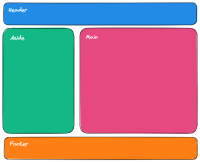With the demand for web developers at an all-time high, having a diverse and relevant skill set is crucial to thrive in today’s freelance market. In 2024, successful freelance web developers go beyond just coding—they master a mix of technical, creative, and business skills to set themselves apart. Here’s a guide to the essential skills you’ll need to succeed as a freelance web developer this year.
1. Core Front-End Development Skills
Front-end development skills are the foundation of web development and include:
- HTML, CSS, and JavaScript: These three languages form the backbone of front-end development. Mastery in these allows you to create responsive, visually appealing websites.
- CSS Frameworks: Familiarity with frameworks like Bootstrap, Tailwind CSS, or Foundation helps speed up the design process and ensures mobile responsiveness.
- JavaScript Libraries and Frameworks: Libraries like React, Vue, and Angular are critical for building interactive user interfaces. In 2024, React remains the most popular choice, but having some experience in multiple libraries is an advantage.
A strong foundation in front-end development enables you to create visually engaging, responsive, and user-friendly websites—key elements clients look for in a freelance developer.
2. Back-End Development Knowledge
Understanding the back end is essential, especially for full-stack freelance projects. Key back-end skills include:
- Programming Languages: JavaScript (Node.js), Python, PHP, and Ruby are popular choices for web development. Node.js is particularly useful if you prefer working with a single language across the stack.
- Databases: Knowledge of both SQL (MySQL, PostgreSQL) and NoSQL (MongoDB) databases allows you to manage and organize data effectively.
- APIs: Being able to integrate third-party APIs or build RESTful APIs yourself is invaluable, particularly in projects that require data exchange between different applications.
Having back-end skills allows you to take on a broader range of projects, from static websites to complex web applications, making you a more versatile freelancer.
3. Content Management System (CMS) Proficiency
Content management systems power a significant portion of websites, so expertise in popular CMS platforms is highly sought after:
- WordPress: As the most widely used CMS, WordPress development is always in demand. Skills in creating custom themes, plugins, and site optimization are valuable.
- Drupal: Drupal is popular for complex, enterprise-level sites, particularly those needing advanced content management or user permissions. Knowing how to configure, customize, and secure Drupal sites can open doors to high-paying projects.
- Shopify and WooCommerce: For e-commerce development, proficiency in platforms like Shopify and WooCommerce is a plus. Many clients need e-commerce features, making this a profitable area to specialize in.
Knowing CMS platforms can help you meet the needs of clients who want control over their website content, without the need for constant technical support.
4. Version Control (Git)
Using Git for version control is an industry standard and a must for any freelance web developer. Git allows you to:
- Track code changes and collaborate more efficiently.
- Revert to previous versions if something goes wrong.
- Use platforms like GitHub or GitLab to showcase your code and contribute to open-source projects.
Familiarity with Git is a skill that clients look for because it demonstrates your ability to work within a team and manage code in a professional way.
5. UI/UX Design Principles
While freelance developers don’t need to be full-fledged designers, having a strong grasp of UI/UX principles can significantly enhance your work. Key UI/UX skills include:
- Responsive Design: Ensuring that websites look and function well across different devices is essential. Clients expect sites that are optimized for mobile, tablet, and desktop.
- Basic Design Tools: Familiarity with tools like Figma, Sketch, or Adobe XD helps you create wireframes or prototypes and collaborate with designers more effectively.
- User Experience (UX) Awareness: Understanding user behavior, navigation flows, and accessibility standards helps you create websites that are not only functional but also user-friendly.
Basic design skills can set you apart in the freelance world, especially if you work on smaller projects where clients might not have a dedicated designer.
6. SEO Knowledge
Clients expect web developers to create sites that are not only well-designed but also optimized for search engines. Key SEO skills for freelance web developers include:
- On-Page SEO: This includes keyword optimization, creating SEO-friendly URL structures, and using alt tags for images.
- Page Speed Optimization: Fast load times improve SEO and user experience. Compress images, use efficient code, and leverage caching techniques to boost performance.
- Mobile Optimization: Since Google prioritizes mobile-friendly sites, ensuring that sites are optimized for mobile users is essential.
Basic SEO knowledge can give your clients’ websites a better chance of ranking well, which increases the value of your services.
7. Communication and Client Management Skills
Technical skills are crucial, but the ability to communicate clearly and professionally is just as important in freelancing. Strong client management skills involve:
- Clear Communication: Set expectations early and explain complex technical details in a way clients can understand.
- Project Management: Use tools like Trello, Asana, or Slack to manage deadlines, track progress, and keep clients in the loop.
- Handling Feedback: Accept and incorporate client feedback gracefully. Maintaining a positive relationship with clients can lead to repeat business and referrals.
Freelancers who manage client relationships effectively often find it easier to retain clients and secure new projects through word-of-mouth referrals.
8. Business and Financial Skills
Running a freelance business requires a basic understanding of finances and business operations:
- Pricing Your Services: Knowing how to set competitive yet profitable rates is essential for sustainability.
- Invoicing and Contracts: Use tools like QuickBooks, FreshBooks, or HoneyBook to manage invoices and contracts, which help streamline your finances.
- Taxes and Expenses: Freelancers need to account for self-employment taxes and keep track of business expenses. Consulting with a tax professional can be beneficial as your business grows.
Business skills are essential for freelancing success, ensuring that you’re profitable and compliant as an independent contractor.
Final Thoughts
In 2024, freelance web developers need a blend of technical, design, and business skills to thrive. From mastering front-end and back-end technologies to managing clients and finances effectively, these essential skills will help you navigate the freelance landscape and attract high-quality clients. By continually refining your skill set and staying current with industry trends, you’ll be well-equipped to succeed as a freelance web developer this year and beyond.
FAQs
1. What are the core skills needed to start freelancing as a web developer?
- Core skills include front-end development (HTML, CSS, JavaScript), back-end development (Node.js, PHP, or Python), CMS knowledge (like WordPress or Drupal), and version control with Git.
2. Do I need design skills to succeed as a freelance web developer?
- While you don’t need advanced design skills, understanding UI/UX principles and responsive design is helpful. Familiarity with tools like Figma or Adobe XD can also aid in collaboration with designers.
3. How important is SEO knowledge for web developers?
- SEO knowledge is valuable, as it helps clients' websites perform better on search engines. Basic on-page SEO, page speed optimization, and mobile responsiveness are key areas to focus on.
4. What business skills should I learn to manage freelance work?
- Important business skills include setting rates, invoicing, client management, and basic financial knowledge, such as tracking expenses and understanding taxes.
5. How can I improve my client communication skills?
- Focus on setting clear expectations, using project management tools, and handling feedback professionally. Regular updates and clear explanations of technical details build client trust and satisfaction.





